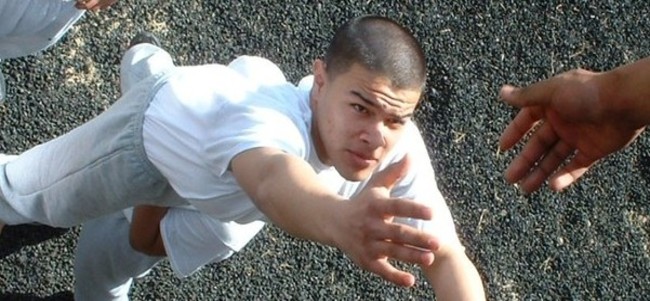A conversation with Renée Spencer
 Editors note: We are thrilled to feature Professor Renée Spencer (RS), whose work has significantly advanced our understanding of the dynamics of adult-youth relationships. In this conversation, UMass Boston clinical student, Laura Yoviene (LY) talks to Renée about her work and inspirations.
Editors note: We are thrilled to feature Professor Renée Spencer (RS), whose work has significantly advanced our understanding of the dynamics of adult-youth relationships. In this conversation, UMass Boston clinical student, Laura Yoviene (LY) talks to Renée about her work and inspirations.
LY: As the nation’s leading qualitative researcher in mentoring, what do you see as the greatest benefits of conducting qualitative research in the area of youth mentoring?
RS: Thank you for your kind words and how nice to be asked about the benefits of qualitative research! Qualitative researchers are often more accustomed to having to defend these approaches. Fortunately, the field of mentoring has been highly receptive to qualitative research and some really wonderful work has been done by researchers like Nancy Deutsch, Bernadette Sanchez, and Julia Pryce among others. Qualitative research allows us to delve into the nitty-gritty details of the mentoring process to more fully understand how it works and how certain factors contribute to mentoring relationships going more and less well. I think qualitative research also helps to bring these relationships to life and highlights the complexities of mentoring, which forces us to grapple a bit with the nuance behind the trends we see in the larger quantitative studies being done.
LY: In your research, you spend a lot of time investigating the nature of quality relationships between a mentor and mentee, what do you see as the most important aspects of a mentoring relationship?
RS: From my perspective, so much rests on the mentors and their commitment – initially to the mentoring process itself and later to the individual child or children with whom they are matched – as well as their ability to adapt and respond to their mentee’s particular needs. I am certainly not saying that other factors don’t matter – quite the contrary. Program practices – including the screening, selection, training and support of mentors- matter greatly. However, it ultimately comes down to whether the mentor can connect with the child, navigate the child’s relational and cultural contexts, and see the process through. I suspect there is actually much more we could be doing to support mentors in this endeavor. At this point, we seem to rely so heavily on the mentoring relationship itself keeping mentors engaged and committed, but that is a lot of pressure on the relationship and can create some mighty big expectations for what spending time with a child will actually be like, especially for one-to-one relationships. This can set mentors up for feelings of disappointment and inadequacy. Other fields that rely on volunteers talk a lot about volunteer retention and ways to keep volunteers engaged by doing things like building strong ties with the agency or fostering a sense of community among volunteers so they feel like they are a part of something larger. If practitioners who see your piece are doing some of this, I hope they will chime in about the great things they are doing on this front.
LY: In two of your recent articles, summarized on the Chronicle, you investigate the innovative approach of Youth Initiated Mentoring (YIM), based on your research what do you see as the greatest advantages of utilizing this youth centered approach to matching?
RS: I’d have to say having some connection at the start. One of the things that was most striking to me when working with the data we report on in those two articles, was how quickly the young people said they felt they could trust and depend on their mentors. In my other work examining relationships established through the more traditional approach of matching youth with adults previously unknown to them, many mentors and youth struggled to build a meaningful connection once the initial excitement of being matched had worn off. The youth in the YIM program tended to select mentors they had known in some capacity for some time and/or who had some quality they admired or whose adult life they hoped to emulate. For many youth, that the mentors came from within their own communities gave their mentors certain credibility from the outset. It is important to keep in mind that these were older adolescents and I suspect that might be an important factor here. Youth at this age have greater autonomy and can be quite selective about who they are willing to share their time with.
LY: Any future directions for your research?
RS: I have been working with Antoinette Basualdo-Delmonico , who recently completed her doctorate, on a couple of projects looking at the role of parents in the mentoring process. We are in the process of writing up our findings from some focus groups with agency staff members about their family involvement practices and Antoinette did a wonderful dissertation study looking at the different types of relationships established between mentors and parents among a group of participants in a larger longitudinal study of one-to-one community-based matches. I also recently completed a study of mentoring relationship endings, again in collaboration with Antoinette along with two other BU doctoral students, Jill Walsh and Alison Drew. We learned that despite best intentions, relationships do not always end well, with planned and clear goodbyes, and that this can be distressing for all involved. These are both areas that I think warrant much greater attention than they are currently given.
LY: Did you have a mentor growing up?
RS: Yes, my aunt! She did not have children of her own and she lavished her unconditional love and support on me and my four siblings. She was at our house all of the time, often bringing some yummy treat like freshly cut watermelon or her famous chocolate pie. She is the kind of person who in her every word and deed makes it crystal clear that she cares about and wants what is best for you. I always felt that she both knew me and loved me and that’s a pretty powerful thing.
Click below for the articles referenced in this interview:
An in-depth look at youth initiated mentoring
Youth Initiated Mentoring: A new approach to working with vulnerable adolescents









